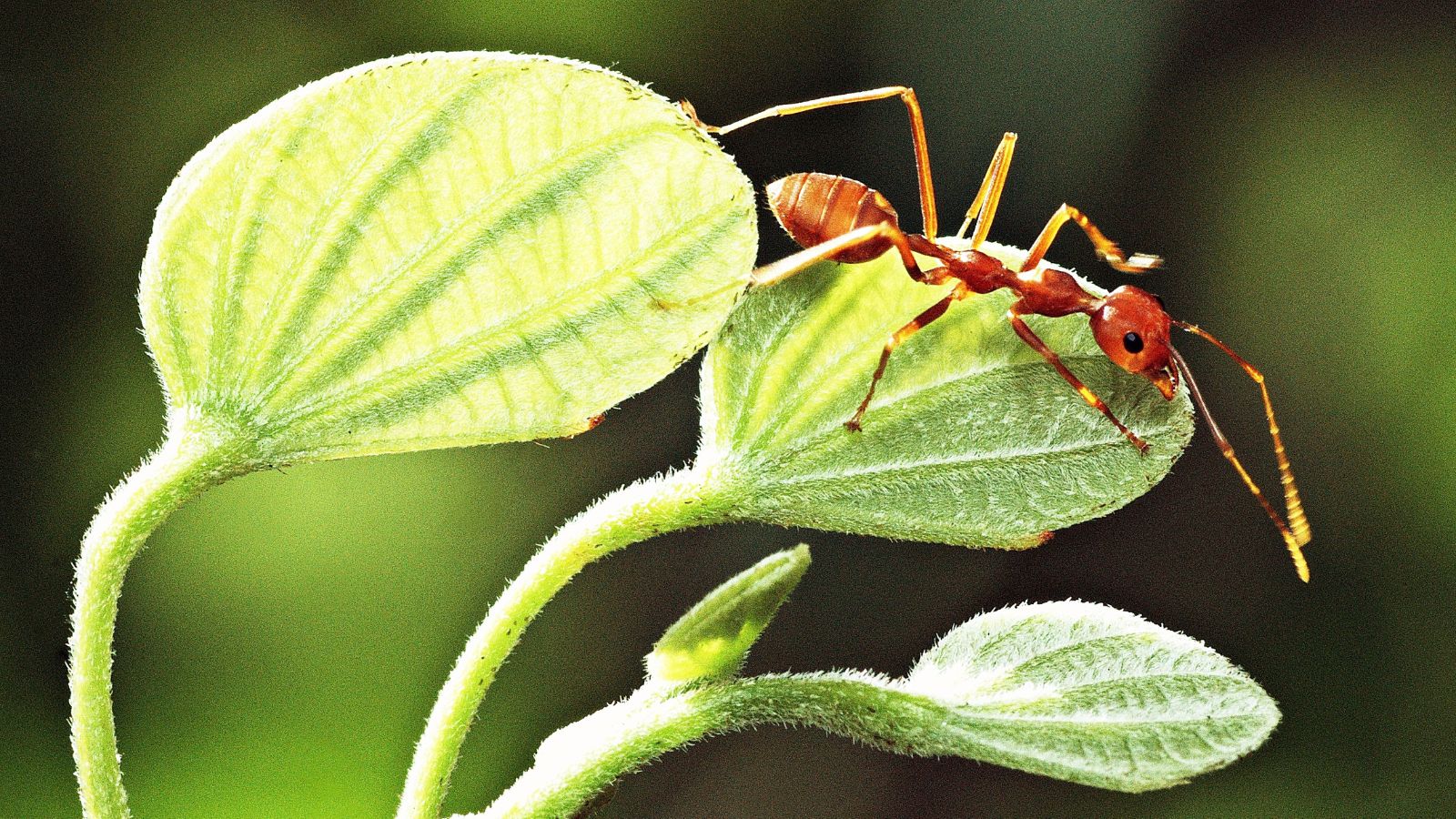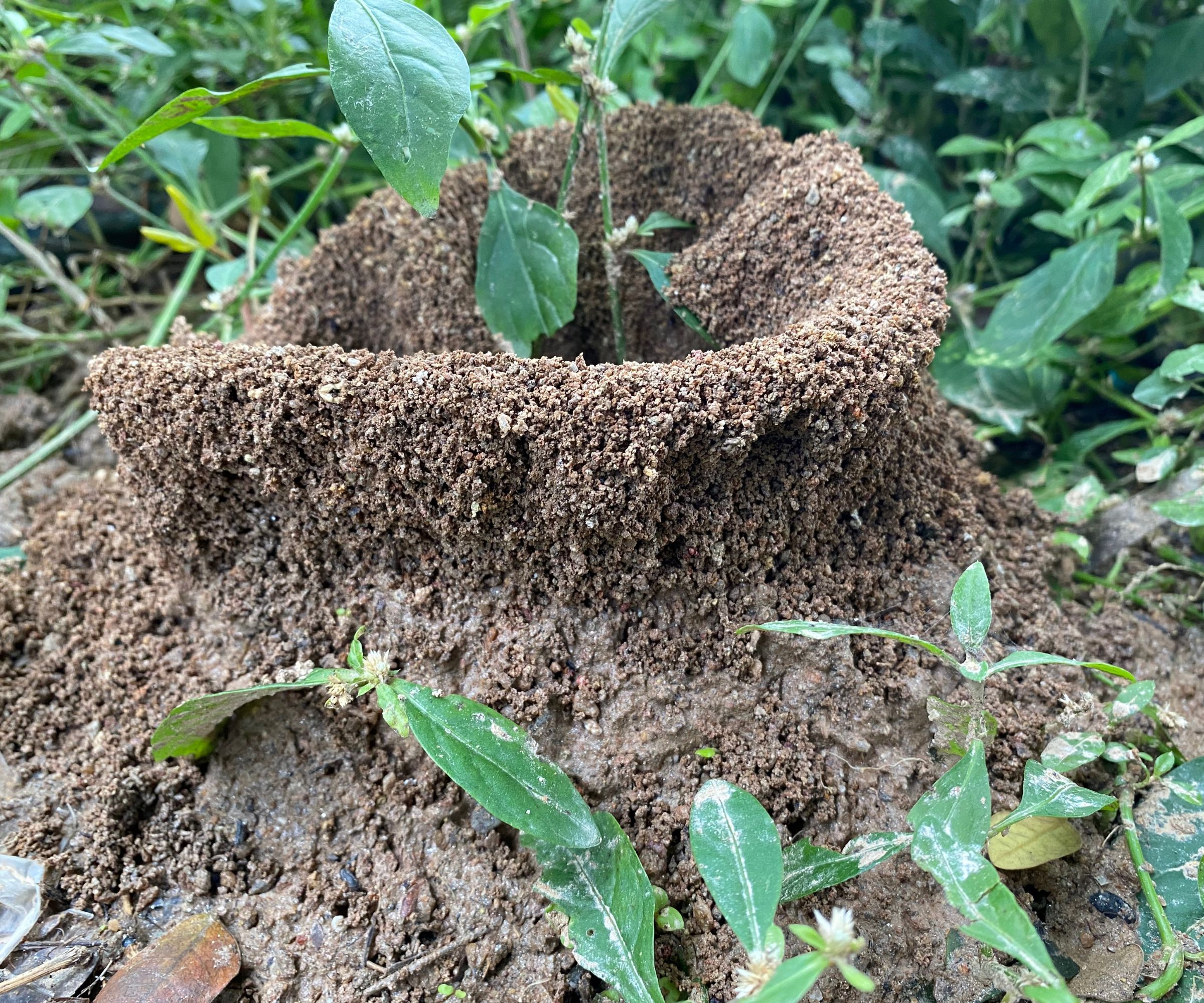
Ants are, more often than not, relatively harmless bugs to have in your yard, but if their nest is tearing up your lawn then it can be a good idea to move them along. But how do you kill ants in a lawn without damaging the grass?
Getting rid of ants can be a laborious process but, there are some quick tricks you can use to get your grass ant free – without killing the plant at the root.
Here, pest control experts have explained how to get rid of an ant nest in a lawn without causing damage to the rest of your yard.
How to kill an ants' nest in a lawn
While ants can be good for your garden, large swathes of them tearing up your lawn and eating your plants are signs that the delicate balance has been tipped the wrong way.

1. Use bait stations to lure the ants out
Ants' primary drive is to find food to bring back to the nest, so setting up a baiting station close to the nest can be a good way to systematically wipe out the colony without having to apply anything to your lawn, suggests Gene Caballero, gardener, lawn care expert and co-founder of GreenPal.
‘Be sure to choose ant baits specifically formulated for the type of ants you're dealing with,’ he adds. ‘For instance, if you're dealing with getting rid of sugar ants, place sugar-based baits near their trails or entry points. These baits are designed to attract sugar ants and are formulated to be carried back to the nest, eventually eliminating the colony. ‘
2. Use biological nematodes
Nematodes are one of the best biological pest control methods available, with these small organics perfect for getting rid of ants nest in a lawn, slug control, and getting rid of lawn grubs all without damaging the plants around them.
They can be purchased online or at a garden center, mixed with water, and sprayed onto the lawn, explains Tim Graham, horticulturist and founder of Yard and Garden Guru. ‘These microscopic worms will enter the ant nest and kill the ants without causing harm to your lawn or other beneficial insects.’
3. Use a dedicated insecticidal treatment to target pests and not grass
Whether you make a homemade bug spray or purchase a commercial insecticide, you can target ants' nests in a lawn without damaging your grass's roots with a spray, suggests Gene Caballero, lawn care expert.
‘Look for insecticides labeled for ant control, such as Raid, available at Amazon, and follow the instructions carefully. Apply the insecticide around the nest or along the ant trails. Take care to protect beneficial insects and follow safety guidelines to minimize environmental impact.
‘One effective method is to mix an insecticidal concentrate with water and apply it directly to the ant nests,’ he adds. ‘This approach helps kill the ants and disrupts their colonies.’
4. Slowly wipe out ants with diatomaceous earth
Diatomaceous earth is another gardener's friend that offers natural pest control, much like nematodes.
Tim Graham, horticulturist, explains that this natural powder, made from tiny fossilized aquatic organisms can be sprinkled around and directly on the ant nest to dehydrate the ants as they come and go.
‘The sharp particles in the powder can cut through the ant's exoskeleton, causing them to dehydrate and die. Better yet, it is also non-toxic for humans and pets.’
5. Stay on top of lawn maintenance to prevent them from settling in
Once you have got rid of your ant nest problem (or even if you want to prevent a nest in the first place) proper lawn maintenance is essential. Keeping your grass trimmed neatly limits available shelter for ants, and removing grass cuttings gets rid of easy pickings for these ferocious eaters, explains A. H. David, pest expert at Pest Control Weekly.
‘You should also consider sealing up cracks and gaps in your home where ants can enter, to prevent ants in a kitchen, and keeping your outdoor dining areas and trash cans clean.’
FAQs
Do ants' nests damage lawns?
Ant nests themselves do very little damage to your grasses roots, however, their incessant burrowing can pile dirt up on top of the lawn and suffocate the blades, causing yellowing. Damage can be caused to the roots when you come to remove the ants, however, so avoid pouring anything down into the burrows.
How long does an ants' nest last?
Ants' nests are very unlikely to go away on their own once they are established with a nesting queen. Nests left undisturbed can survive and thrive for several years if the conditions are right and there is an abundance of food nearby. As a result, it is best to treat an ant nest as soon as you notice it to try and discourage the ants before they have time to establish themselves.
It is important to remember that successful ant nest removal requires patience and persistence. ‘It's important to monitor the affected areas, reapply treatments as needed, and address any underlying conditions that may attract ants to your lawn,’ concludes Gene Caballero, lawn care expert.
Of course, if you still struggle to get rid of the ants nest without damaging your grass yourself, it is always a good idea to call in a professional pest control expert. They will have access to treatments that are not commercially available and may be able to better treat the source of the problem without tearing up your turf.







